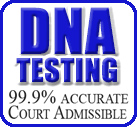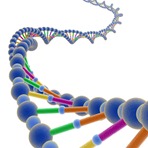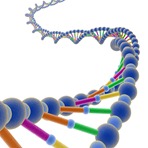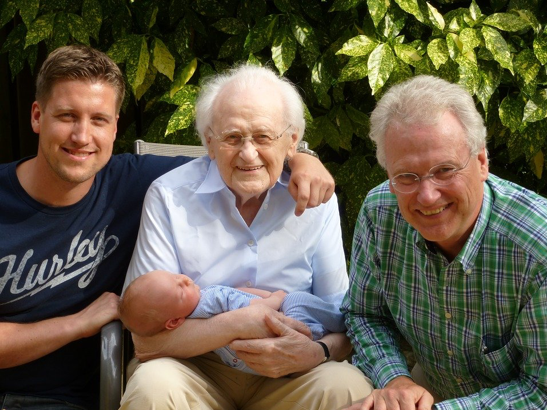Open on Evenings & Holidays! Extended And Flexible Hours!
* DNA Testing for Immigration
* Paternity Testing
* Prenatal Testing
* Deceased Paternity
* Forensic Testing & Much More!
Open on Evenings & Holidays! Extended And Flexible Hours!
* DNA Testing for Immigration
* Paternity Testing
* Prenatal Testing
* Deceased Paternity
* Forensic Testing & Much More!

AB DNA Testing Services
63-11 Queens Boulevard
Woodside NY 11377
Phone: 718-701-0292
Fax: 718-458-9700
Monday: 10:00 am – 8:00 pm
Tuesday: 10:00 am – 2:00 pm
Wednesday: 10:00 am – 8:00 pm
Thursday: 10:00 am – 2:00 pm
Friday: 10:00 am – 8:00 pm
Saturday: Closed
Sunday: Closed
* After Hours: Weekends by appointment only *
We offer New York’s BEST AND MOST AFFORDABLE DNA TESTING with a full range of services to verify family relationships.
We specialize in the following types of DNA tests:
• Paternity • Prenatal • Maternity • Grand-parenting • Sibling Relationship • Biological Relationship Studies • Twin Studies • Deceased Paternity • Forensic Testing • Child Identity Testing • Family Tree and Genealogy Testing
* EVEN LOWER PRICE THAN HOME DNA KITS.
* NO HIDDEN COSTS – Collection kits, photography, and fingerprinting all included.
* 99.9% (OR GREATER) ACCURACY.
* FINAL RESULTS ARE PRESENTED IN A NOTARIZED DOCUMENT IN A CLEAR AND CONCISE FORM.
* ALL RESULTS ARE COURT ADMISSIBLE.
* OVER 15 YEARS EXPERIENCE.
* NO REFERRALS NECESSARY!
* FAST AND PAINLESS SAMPLE COLLECTIONS, USING BUCCAL (Mouth) SWABS.
* SPANISH, PORTUGUESE, FRENCH AND CREOLE SPOKEN.
* PLEASE SEE TRANSLATIONS OF OUR SERVICES IN: SPANISH, BENGALI, URDU, CHINESE AND NEPALESE!
* OPEN SATURDAYS & Sundays!
Located In Woodside Queens, easily reachable from all boroughs (Queens, Manhattan, Brooklyn, Bronx and Staten Island), Westchester, Nassau and Suffolk. 4 Blocks from No. 7 Train (Flushing Line) and Long Island Railroad.
DNA TESTING AVAILABLE FOR BAHAMIAN CITIZENSHIP
ALL SAMPLES ARE COLLECTED IN THE BAHAMAS AND TESTED IN THE US AT AN ACCREDITED LABORATORY. CALL NOW.
Call us. We have found that in many cases, our personalized service can overturn your denial. We will call the passport office or immigration dept. for you and plead your case over phone verbally.
90% of time they will revoke your denial, as long as you get the required information to them quickly.
AB DNA TESTING SERVICES
63-11 Queens Boulevard
Woodside NY 11377
AB DNA Testing Services © |
 |
63-11 Queens Boulevard We are open on evenings & holidays! |
 |
AB DNA Testing Services © offers a full range of DNA testing services using the most highly qualified and Certified DNA testing laboratories in the country.
For New York residents, DNA testing has to be performed by a physician or legal entity (court, USCIS, US Embassy or Consulate).
AB DNA TESTING SERVICES © offers a “One-Stop Shopping” service since we have a doctor on the premises who will perform the test. We are open 7 days a week, including weekends.
Prenatal DNA Testing • Immigration DNA Testing • Paternity • Maternity • Grand-parenting • Sibling Relationships • Biological Relationships • Twin Studies • Deceased Paternity • Forensic Testing • Child Identity Testing • Family Tree and Genealogy Testing
Other doctors will charge a fee just for the office visit. We do not charge a fee for our on premises doctor visit. Save money and call for an appointment today!
AB DNA Testing Services ©
718-701-0292
DNA TESTING AVAILABLE FOR BAHAMIAN CITIZENSHIP
ALL SAMPLES ARE COLLECTED IN THE BAHAMAS AND TESTED IN THE US AT AN ACCREDITED LABORATORY. CALL NOW.
How does DNA work in your family tree? Many people choose to try DNA testing when they are not sure about the history of their family. You can opt for DNA Testing when your family tree is incomplete, and the information you have is not enough. DNA testing may help you overcome current obstacles to researching your family tree and background. Moreover, it helps you discover lost relatives in the process.
To cross all the barriers, a genealogist may use traditional research methods at the start and try various techniques. Along with all the other methods for finding the family tree, genealogists might also try DNA testing.
You can use three popular DNA testing techniques to find out your family tree. Various organizations, such as AB DNA Testing, provide lists for matching DNA. These lists can help you find your relatives and complete your family background. However, with so many options for DNA testing, you might not know which method you should use.

(Source)
After completing your DNA test, you can follow various methods for removing the problems in finding your family. Here are some methods that you can try along with your DNA test.
If you are willing to find your parents or grandparents, you should sort your DNA matches into groups. Many organizations also help you sort your DNA matches to map out your family tree easily. If a group has the most matches, it means that they have the same ancestors.
Now compare the family trees of these matches, find the groups connecting to you, and list them down. By listing them down, you can find your relative. If you find any ancestors appearing in different family trees, they could be common between you and your possible relative.
When you are researching a common ancestor, you need to look for the places and dates matching the information you already have. This can bring you even closer to your close relatives. You can ask your living descendants to take the DNA test.
If you don’t know some relatives due to migration or immigration, missing records, or change of name, you can lead your new relatives through DNA and find their locations and surnames. You track down clues with the information you get from your possible relatives. First, you should locate and identify your ancestors’ descendants through their DNA (if they had a DNA test. If they never had their tests, you can ask them to do so).
Various websites offer you common or shared features to identify different DNA matches and connect with your ancestors. Now you should review the matches of the other descendants and look for their trees. Search for people, their locations, and surnames matching the information you already have about your ancestors. Now search for those relatives and ask them about your ancestors.
If your records are missing, burned, or were never created, you can find your ancestors by hypothesizing who it could be. You can also use your DNA to further confirm your relationship with your possible relative.
You can start by searching for your ancestors and identify every possible relative. Now locate the living descendants of your ancestors and the ancestors of your possible relatives. You can get a better idea by comparing your descendants’ DNA and the descendants of your possible relatives. If both their DNA matches, then you are on the right track.
Once you identify the DNA matches that relate with your ancestors, you can contact those matches and discover more about your family lines. If your ancestors were recently alive, they could also share some living memories of your descendants. Their memories can further help you track relevant information or records. If you are in luck, they might have your family tree and any other information.
If your match does not have a family tree or any other information, don’t lose hope yet. You both can still work together and find more about the ancestors that you both share. By working together, you can find more information. There are various websites relating to the family tree where you can upload your family background so other people can also get their ancestors’ track.

(Source)
Various websites can help you find your ancestors. Before that, you need to go through your DNA testing so that your DNA can work as a source. AB DNA Testing can help you in this regard. Our team of experienced and professional technicians is some of the best in their fields. They can help you connect with your ancestors through various DNA tests.
AB DNA TESTING
63-11 Queens Boulevard
Woodside NY 11377
Call Today
718-701-0292
Do DNA Tests Prove Family Relationships? A DNA or Deoxyribonucleic acid is a biological molecule present inside our body. It contains two polynucleotide chains that twist and coil around each other to form a double helix looking structure. You could also say that it resembles a circling ladder. This molecule carries a genetic code which dictates your development, growth, characteristics, functioning, abnormalities and abilities.
The DNA molecule comprises of nucleotides, each symbolized by the following letter, A, T, C or G. Their names are Adenine, Thymine, Cytosine and Guanine. These nucleotides form pairs with each other. A chromosome, which is a long DNA molecule, consists of these pairs linked to each other to form a double helix structure.
A DNA test commonly confirms family relationships. This is a more accurate application for DNA tests because an offspring inherits a lot of the DNA material from their parents. Due to this, laboratory tests are able to compare their DNAs for similarities and make appropriate confirmations on their biological relationships.
The process of conception requires the father’s sperm cell to fuse with the mother’s egg cell to form a fertilized egg. This fertilized egg or the zygote consists of a complete set of DNA molecules that the egg cell and sperm cell contribute equally. The zygote then divides and multiplies to form an offspring, which contains DNA material from both their parents. It is a significant reason why DNA tests are valid for proving family relationships.
As mentioned earlier, every multiplication of the cell will have DNA that shares half properties of the father’s DNA and half of the mother’s DNA. Testing DNA for biological relationships is a process, in which scientists try to find special locations in the human DNA that contain specific DNA sequences. The scientists will identify these sequences as markers, which display repeated patterns of the genetic coding. Your DNA has two sets of markers, one from the maternal side and the other from the paternal side. The paternal DNA test uses these markers to identify and confirm a person’s paternity.
Scientists can also use these markers to create a unique genetic profile of an individual. This is possible because of the repetitive nature of the genetic code. Creating a unique genetic profile of an individual helps the scientist to identify paternity, since an individual’s genetic profile reflects where they came from.
Children get 50% of their DNA from both their parents. This makes it possible to test maternal relationship without having to test the father. Just like the father, a person will share 50% of the DNA with their mother. The procedure and method to determine this will be the same.
DNA tests to prove biological relationships like siblings or grandparents are similar. This test also uses the help of genetic markers to look at similarities between DNA samples. The percentage of similarities between genetic markers indicate how likely they are to be biologically related. Full siblings share 50% of the DNA on average, while half siblings share 25% of the DNA. Even grandparents will share 25% of the DNA with their grandchildren.
A DNA test for genealogy is a laboratory test that studies a person’s genome in order to identify their genealogy. For people who don’t know, genealogy is the study that enables genealogists to study a person’s family history, lineage and ancestral roots. You can also use DNA tests to track back your family tree. Tracking back your ancestral roots can give you a scarce idea about the migration patterns about your ancestors. Thus, informing you about how the geographical locations might have influenced your genetic make-up.
DNA tests are now far more accurate and efficient than they were before. Getting your DNA tested can have a positive influence on your life. DNA tests reveal a lot about you, and could help you plan your life accordingly. Some of the benefits include:
Living with doubt can be exhausting and off-putting, especially if it concerns your biological relationships. A DNA test provides you absolute certain confirmations about your blood relatives, minimizing uncertainties to some extent.
A DNA test not only provides you with information on biological relationships, but also reveals loopholes concerning your health. These include inherited medical conditions that you are most susceptible of developing. By utilizing this information, you can plan your life accordingly to avoid certain inherited diseases.
You can certainly prove biological relationships with the help of a DNA test. Getting one is easy and accessible but the accuracy will depend on the proficiency of the lab. If you are interested in getting an accurate DNA test, visit AB DNA testing or dial their number at 718-701-0292.